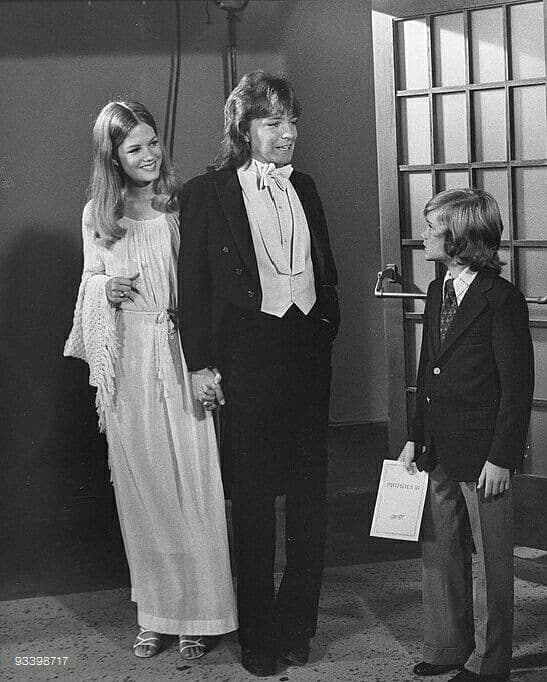
An emotional and timeless anthem of love and heartbreak.
I Am A Clown
In the vibrant tapestry of early 1970s pop culture, few figures shone as brightly or as briefly as David Cassidy. He was a supernova, a teen idol whose face adorned bedroom walls and whose voice was the soundtrack to countless youthful dreams. Yet beneath the glossy exterior of the Partridge Family fame lay an artist with a deeper emotional well, a fact often overlooked by those who only saw the meticulously crafted star. It is in this light that we must revisit his 1972 single, “I Am a Clown.” This isn’t just a pop song; it’s a poignant, introspective ballad that serves as a powerful testament to the universal feelings of unrequited love and the emotional masks we wear to hide our pain. For those of us who grew up with Cassidy‘s voice echoing from our transistor radios, this song carries a specific, almost sacred weight—it’s a reminder of a simpler, more innocent time, yet one where the pangs of young love felt just as profound as they do today.
Originally released as the B-side to “Could It Be Forever,” “I Am a Clown” soon found a life of its own, reaching a respectable No. 3 on the UK Singles Chart. While “Could It Be Forever” was a sweeping, romantic hit, “I Am a Clown” offered something far more raw and vulnerable. Penned by the legendary songwriter Tony Romeo, the song tells a deeply personal story of heartbreak and the façade of happiness. Romeo had also written “I Think I Love You” for The Partridge Family, but “I Am a Clown” was a different beast entirely. Romeo was inspired by his own tumultuous relationships and the emotional toll of putting on a brave face. He crafted a narrative that resonated with Cassidy‘s own feelings of being an entertainer, constantly on display, while grappling with his personal life behind the scenes. This is the tragic paradox at the heart of the song: the performer who brings joy to others is, in his private moments, consumed by sorrow.
The lyrics are a masterclass in emotional storytelling. They paint a vivid picture of someone forced to play the role of a jester, to laugh and smile, all while their heart is breaking. “I am a clown / And I’ll laugh and I’ll smile for you,” Cassidy sings, his voice a perfect blend of sweetness and sorrow. This duality is what makes the song so enduring. It speaks to anyone who has ever had to hide their pain, to pretend that everything is fine when it’s anything but. The clown persona is a brilliant metaphor for the emotional armor we all don, whether it’s at a party, in a professional setting, or just in the presence of the person we love who doesn’t love us back. For a generation of young men and women, this song gave voice to a feeling they might not have had the words for themselves. It was an acknowledgment that it was okay to be hurting, even when the world expected you to be happy.
Beyond the lyrical depth, the song’s arrangement is a study in quiet melancholy. The gentle piano, the understated strings, and Cassidy‘s heartfelt delivery create an atmosphere that is both intimate and universal. It’s a song that feels like a quiet confession whispered in a late-night conversation. When we hear it today, it’s not just a song from the past; it’s a time machine, transporting us back to our own youthful heartbreaks, to the first time we understood the pain of unrequited love. It reminds us of the bittersweet nature of memory, of a time when the world was full of possibility, even as our hearts were learning their first painful lessons. “I Am a Clown” is more than a relic of the Cassidy discography; it’s a timeless piece of emotional art that continues to resonate with anyone who has ever had to put on a brave face while feeling like their world was falling apart. It’s a nostalgic embrace of our past selves and the quiet sorrows that shaped us.